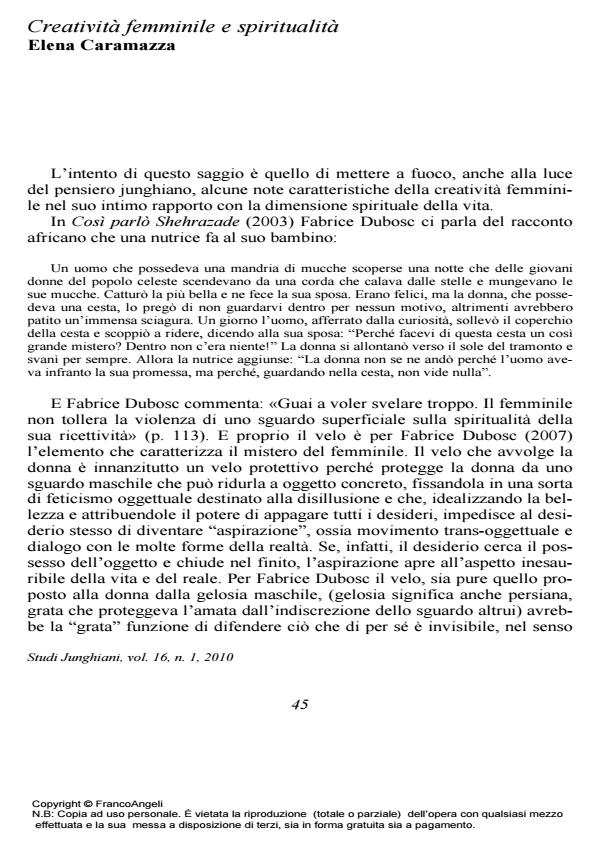Feminine creativity and religiousness
Journal title STUDI JUNGHIANI
Author/s Elena Caramazza
Publishing Year 2010 Issue 2010/31
Language Italian Pages 24 P. 45-68 File size 498 KB
DOI 10.3280/JUN2010-031004
DOI is like a bar code for intellectual property: to have more infomation
click here
Below, you can see the article first page
If you want to buy this article in PDF format, you can do it, following the instructions to buy download credits

FrancoAngeli is member of Publishers International Linking Association, Inc (PILA), a not-for-profit association which run the CrossRef service enabling links to and from online scholarly content.
The peculiar character of women’s creativity lies for the Author in the development of that form of conscience that Jung qualifies as "symbolic", a conscience endowed with the ability to seize the unknowable dimension of reality. While "rational" conscience with which men’s mind tends to identify defines things on the ground of sensible perception and instrumental thought by severing subject from object of knowledge, symbolic conscience elaborates images that grasp the kern of reality. In Jung’s words, to see things symbolically means "to spread a veil on facts as they are". It is a veil that does not hide, but reveals inasmuch as it overcomes the temptation to have reality coincide with appearance. Symbolic knowledge merges not only what is knowable and unknowable, but also knower and known, subject and object, knowledge and life, opening the way to creation. It is intrinsically linked to spirituality seen as a process that develops starting from the psyche’s polarities. From this point of view, spirituality does not imply the negation of instincts and body needs, but on the contrary is an activity originating from that deep layer of the psyche, bordering with organic matter, defined "psychoid" by Jung. Spirituality is characterised by the values of harmony, peace, and forgiveness rooted in the emphatic talent peculiar of women.
Keywords: Creativity, symbolic conscience, woman, veil, forgiveness
Elena Caramazza, Creatività femminile e spiritualità in "STUDI JUNGHIANI" 31/2010, pp 45-68, DOI: 10.3280/JUN2010-031004